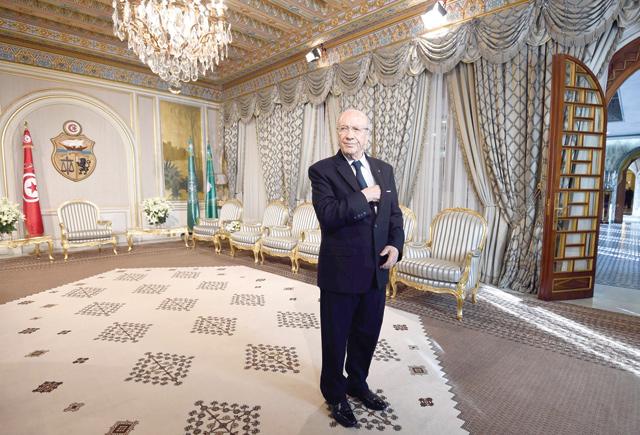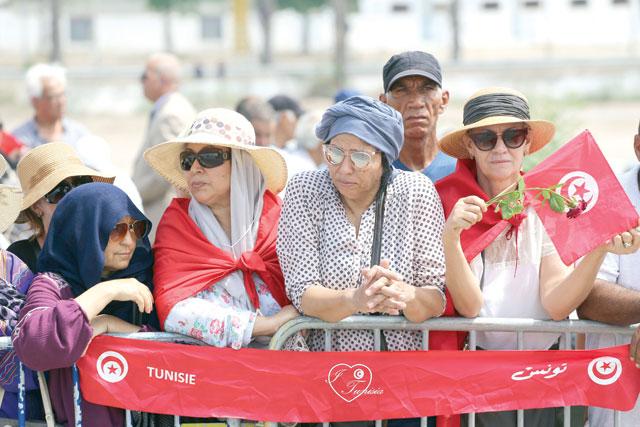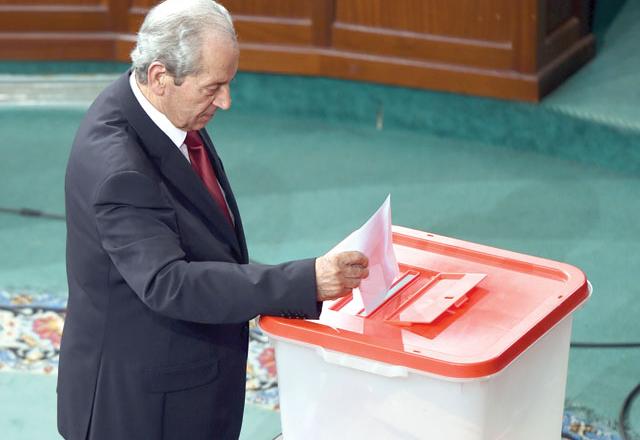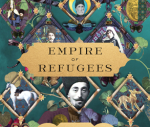You are here
Uncertainty for Tunisia as president dies at 92
By AFP - Jul 25,2019 - Last updated at Jul 25,2019

This file photo taken on January 14, 2015, shows Tunisian President Beji Caid Essebsi stands in his office before an event in Tunis, marking the fourth anniversary of the ousting of Tunisia's longtime ruler Zine El Abidine Ben Ali, that sparked the Arab Spring uprisings (AFP photo)
TUNIS — Tunisian President Beji Caid Essebsi, the country's first leader elected in nationwide polls, died at the age of 92 on Thursday, triggering political uncertainty ahead of planned elections.
The veteran politician, the oldest head of state after Britain's Queen Elizabeth II, came to power in 2014, three years after the Arab Spring uprising toppled longtime despot Zine El Abidine Ben Ali and sparked revolts in several Arab nations.
His death ushers in a period of political transition in the North African nation, hailed as a rare Arab Spring success story.
Essebsi, who had already ruled out running again for office, was hospitalised with a severe illness in late June and had returned to intensive care on Thursday. Media reports said he would be buried on Saturday.
President Emmanuel Macron of former colonial power France hailed his late counterpart as “a friend” of France and “a courageous leader”.
German Chancellor Angela Merkel called Essebsi “a courageous actor on the road to democracy” and Italian premier Giuseppe Conte also sent his condolences for the passing of a “statesman of great... humanity”.
Tunisia’s parliament announced its speaker Mohamed Ennaceur would take the reins as interim president, and within hours he was sworn in as the new leader.
Ennaceur, who called on Tunisians to show “solidarity”, now has 90 days to organise a presidential election, electoral commission head Nabil Baffoun told AFP.
That means the vote, previously set for November 17, must be held by October 23.
“The state will continue to function,” Ennaceur said on state television. The 85-year-old also recently had a bout of ill-health, raising concerns about his ability to hold office.
Extremist attacks
The birthplace of the Arab Spring revolts, Tunisia is the only country affected by the uprisings to have pushed through democratic reforms — despite political unrest, a sluggish economy and extremist attacks.
Extremists have staged repeated deadly attacks since the overthrow of Ben Ali, raising fears for the country’s fragile democracy and throttling its tourism industry.
In March 2015, gunmen killed 21 tourists and a policeman at the National Bardo Museum in Tunis.
In June that year, 30 Britons were among 38 foreign holidaymakers killed in a gun and grenade attack on a beach resort near the Tunisian city of Sousse.
In November 2015, a suicide bombing against a bus in the capital carrying presidential guards killed 12. All three attacks were claimed by the Daesh group, and prompted a state of emergency that remains in place.
A veteran politician, Essebsi had served as an adviser to Habib Bourguiba, the father of Tunisia’s independence from France, holding a number of key jobs under him and later under Ben Ali.
Over the years, Essebsi was director general of the national police and interior minister. He later held the defence portfolio before becoming ambassador to France as well as Germany.
Essebsi is the founder and chairman of the secularist Nidaa Tounes (Call of Tunis) party.
Nidaa Tounes won the polls in 2014 and formed a coalition with the Islamist-inspired Ennahdha, which lasted four years before the two parties split.
But Essebsi’s party has struggled to overcome bitter internal divisions between Prime Minister Youssef Chahed and Essebsi’s son, Hafedh, leading to the premier being sidelined from Nidaa Tounes and forming his own rival party, Tahia Tounes.
Morocco’s king Mohammed VI sent his condolences for the loss of a leader who had “devoted himself to building a modern state”.
Essebsi’s death comes amid a debate over who will be able to run in the next presidential elections.
Essebsi neither rejected nor enacted an amended electoral code passed by parliament in June that would bar the way for several strong candidates including media magnate Nabil Karoui.
Karoui, who has formed a political party, was charged with money laundering this month after he stated his intention to run for office.
Related Articles
TUNIS — Thousands of Tunisians on Saturday attended the funeral of president Beji Caid Essebsi as the North African nation gears up for snap
Tunisia’s first parliament since the 2011 revolution on Thursday elected veteran politician Mohamed Ennaceur, 80, of anti-Islamist party Nidaa Tounes as house speaker.
TUNIS — Tunisia’s moderate Islamist Ennahda became the biggest party in parliament on Monday, after more lawmakers in President Beji Caid Es




















